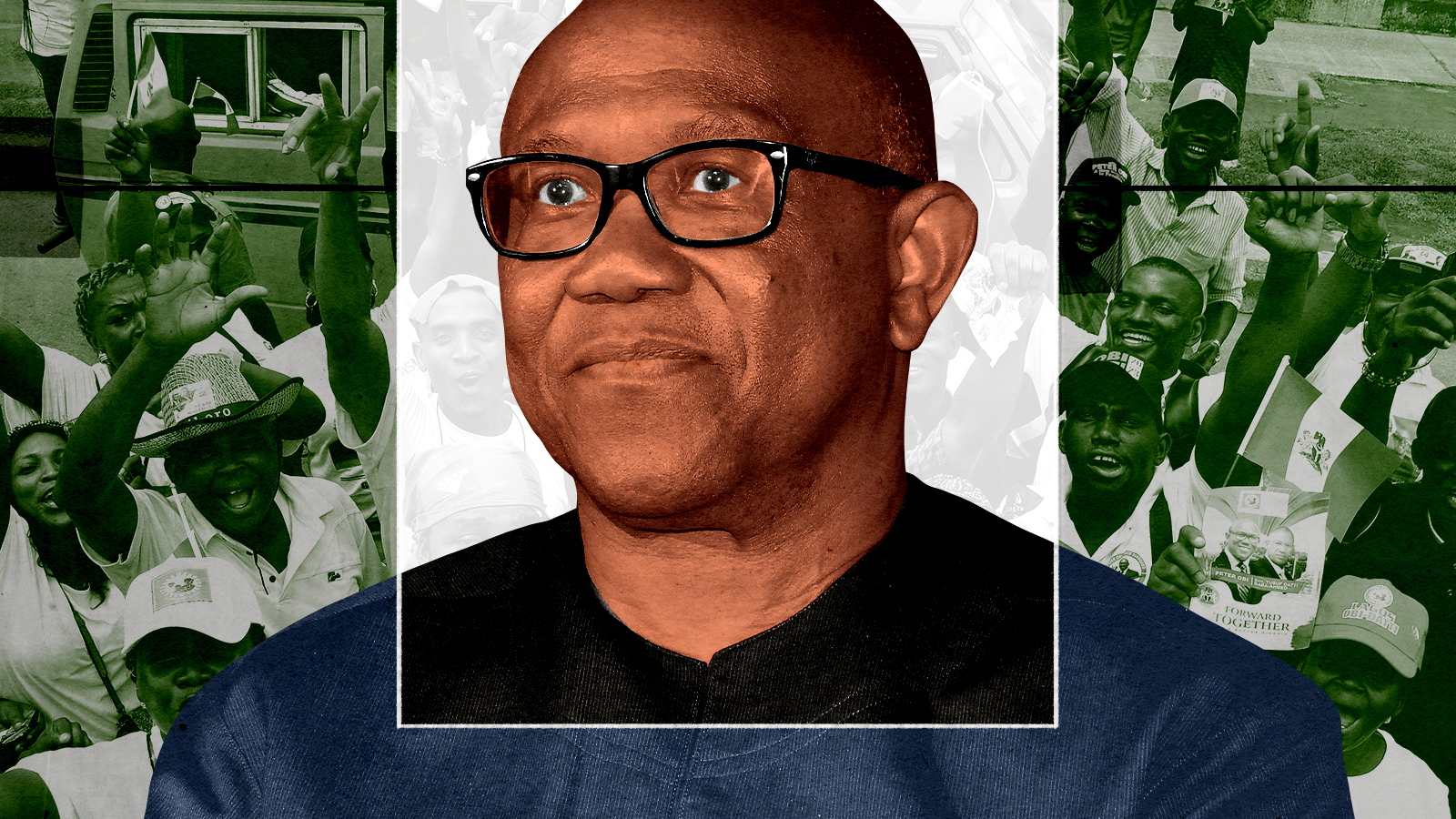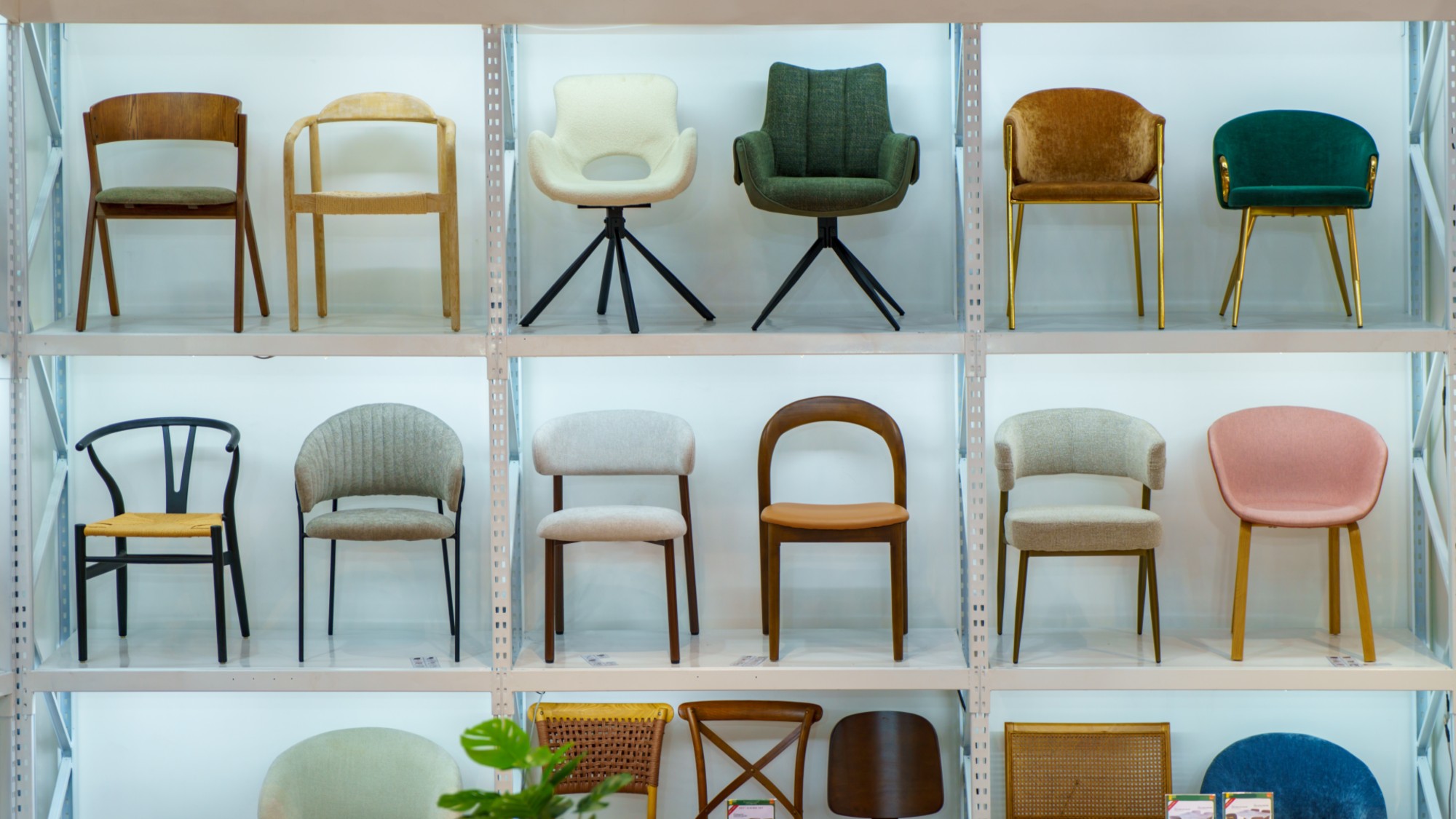All about Nigeria's presidential election
What are the stakes in the largest democracy in Africa?


A free daily email with the biggest news stories of the day – and the best features from TheWeek.com
You are now subscribed
Your newsletter sign-up was successful
Nigeria's Feb. 25 presidential election ended with Bola Tinubu declared the winner after a fraught campaign season. The largest democratic election in Africa was different than usual, with three potential candidates rather than the usual two from the ruling party and the opposition. Here's everything you need to know:
Why was this Nigerian election so significant?
Sitting Nigerian President Muhammadu Buhari is set to leave office in May 2023 at the completion of his second term. He leaves behind a legacy that has caused "a lot of frustration and anger" to Nigerians, according to analysts. He promised free and fair elections and even opened the race to succeed him earlier than previous presidents, giving the candidates the longest campaign period since 1999, Reuters reports. The election was called "a battle for the soul" of Nigeria, with the nation's economy, security, and governance emerging as major talking points in the campaigns, reports The Washington Post.
All presidential candidates signed a pact ensuring a peaceful campaign, a tradition that started in 2015 and has continued ever since. This was an effort to combat the violence that has often occurred during Nigerian general elections. For example, at least 58 people died in election-related incidents in 2019, the Post continues. Just ahead of the election, eight police officers were killed in separate attacks.
The Week
Escape your echo chamber. Get the facts behind the news, plus analysis from multiple perspectives.

Sign up for The Week's Free Newsletters
From our morning news briefing to a weekly Good News Newsletter, get the best of The Week delivered directly to your inbox.
From our morning news briefing to a weekly Good News Newsletter, get the best of The Week delivered directly to your inbox.
Nigeria, like the U.S., has had a two-party system since its democracy was restored in 1999: the All Progressives Congress (APC) and the People's Democratic Party (PDP). Among the 18 candidates running for the presidency were candidates Bola Tinubu, 70, of the incumbent APC, and Atiku Abubakar, 75, of the main opposition, PDP, reports The Economist. However, in a surprising twist, a third candidate emerged as a contender for the presidency. Peter Obi, 61, is a member of the Labor Party.
Who were the candidates to watch?
The candidate from the ruling party APC was 70-year-old Bola Tinubu, who ultimately ended victorious. Tinubu is the former governor of Nigeria's Lagos state and had a stronghold in the southwest of the country. He helped raise the revenue of the region while governor, with supporters advocating that he'll do the same for the rest of the country.
However, others claim that the state's infrastructure was left in disarray following Tinubu's tenure. He has also faced corruption allegations with accusations of money laundering, fraud, and tax evasion, which he denies. Tinubu is also incredibly wealthy and has been accused of using money to buy votes. "If I have money, if I like, I give it to the people free of charge, as long as [it's] not to buy votes," he said.
The opposition party's PDP's candidate was 75-year-old Atiku Abubakar. Abubakar ran his sixth campaign after five previous failures. He served as vice president between 1999 and 2007 when he ushered reforms in the telecommunications, pensions, and banking sectors that led to job growth. Nigeria is currently battling a high unemployment rate and inflation, which supporters believe Abubakar's business prowess could fix.
A free daily email with the biggest news stories of the day – and the best features from TheWeek.com
Abubakar was also a founding member of the APC party along with Tinubu but is now a member of the opposition. During his vice presidency, he was accused of appointing acquaintances to positions of power despite their lack of qualifications. Abubakar has also faced investigations regarding state funds being funneled into personal business ventures, BBC reports.
The third candidate, 61-year-old Peter Obi of the Labor Party, had the world wondering whether the upcoming election would be a major upset. Obi previously served as the governor of Nigeria's Anambra State between 2006 and 2014. He was also the vice presidential candidate for Atiku Abubakar in 2019. Obi switched from the PDP to the Labor Party (LP), popularizing it and garnering support, This Day Live reports.
Obi has taken a stand against Nigeria's political elite, appealing to many younger voters. A decade younger than his competitors, he is active on social media and actively denounced political corruption. In an interview with BBC, he called the election "old against the new." His supporters, known as "obi-dients," point to his investment in education during his governorship as well as how he left large amounts of state savings at the end of his term.
Critics claim that Obi is a political imposter who is also not free of corruption and mishandling. His name appeared in the leaked Pandora Papers, a cache of files that exposed the hidden wealth of the rich and powerful in 2021, and was accused of not declaring offshore accounts. While he was governor, he was accused of investing state funds into a company he was working with, a claim that he denied.
Who won?
Bola Tinubu was declared the victor in an election fraught with accusations of fraud and rigging. Tinubu received 36 percent of the votes, just avoiding a runoff election, followed by Abubakar and Obi. Voter turnout was only 27 percent compared to 35 percent in 2019, per the Times.
Due to how slow results were updated by the electoral commission, many grew distrustful of the election with Abubakar and Obi calling for it to be rerun. In response to the results, Obi, who came in third, rejected Tinubu's victory, claiming that it was rigged and that he should have won. "We will explore all legal and peaceful options to reclaim our mandate. We won the election and we will prove it to Nigerians," he said. Many polls ahead of the election placed Obi ahead, in some cases by a wide margin, according to The New York Times. However, there were a significant number of undeclared voters.
Election results are being challenged in the courts and have caused the country's gubernatorial elections to be postponed by a week. "This decision has not been taken lightly but it is necessary to ensure that there is adequate time to back up the data stored on the over 176,000 BVAS machines," said Nigeria's electoral commission in a statement.
The election featured a new voting system requiring biometric data for identification in order to prevent any rigging. The problem is the electoral commission may be operating at its peak capacity and is subject to violence because of corruption, The Wall Street Journal writes.
What does this mean for Nigeria?
Nigeria is facing a myriad of economic problems that much of the youth attributes to a stagnant political system. Nigerians are poorer than they were ten years ago and despite being the most populated African country, a large percentage live on under $1.90 a day, reports the Economist. The pandemic also sparked a recession in 2020 and the country has been unable to keep up with the rising oil prices. Income inequality is also high, World Bank explains. A survey found that over 90 percent of Nigerians believe the country is moving in the wrong direction.
This was the first election in decades that had no incumbent candidate on the ballot, signaling Nigerians' desire for significant political change. Sitting President Buhari had promised to eradicate widespread corruption, which did not come to fruition. According to the Economist, Nigeria should be wealthier given its huge oil, gas, and mineral reserves, and its availability of fertile land. However, corruption has seemingly prevented any progress from being made. Jihadist terrorism and gang violence have also been huge problems, and Obi claimed they would be his "number one priority."
That the presidential election's drama will drag out with legal challenges will likely only add to Nigerians' frustrations. "This election did not meet the minimum standard expected of a free, transparent, credible, and fair election," Obi remarked. "It will go down as one of the most controversial elections ever conducted in Nigeria."
Devika Rao has worked as a staff writer at The Week since 2022, covering science, the environment, climate and business. She previously worked as a policy associate for a nonprofit organization advocating for environmental action from a business perspective.
-
 How the FCC’s ‘equal time’ rule works
How the FCC’s ‘equal time’ rule worksIn the Spotlight The law is at the heart of the Colbert-CBS conflict
-
 What is the endgame in the DHS shutdown?
What is the endgame in the DHS shutdown?Today’s Big Question Democrats want to rein in ICE’s immigration crackdown
-
 ‘Poor time management isn’t just an inconvenience’
‘Poor time management isn’t just an inconvenience’Instant Opinion Opinion, comment and editorials of the day
-
 ‘Poor time management isn’t just an inconvenience’
‘Poor time management isn’t just an inconvenience’Instant Opinion Opinion, comment and editorials of the day
-
 Kurt Olsen: Trump’s ‘Stop the Steal’ lawyer playing a major White House role
Kurt Olsen: Trump’s ‘Stop the Steal’ lawyer playing a major White House roleIn the Spotlight Olsen reportedly has access to significant US intelligence
-
 Japan’s Takaichi cements power with snap election win
Japan’s Takaichi cements power with snap election winSpeed Read President Donald Trump congratulated the conservative prime minister
-
 How realistic is the Democratic plan to retake the Senate this year?
How realistic is the Democratic plan to retake the Senate this year?TODAY’S BIG QUESTION Schumer is growing bullish on his party’s odds in November — is it typical partisan optimism, or something more?
-
 The billionaires’ wealth tax: a catastrophe for California?
The billionaires’ wealth tax: a catastrophe for California?Talking Point Peter Thiel and Larry Page preparing to change state residency
-
 Bari Weiss’ ‘60 Minutes’ scandal is about more than one report
Bari Weiss’ ‘60 Minutes’ scandal is about more than one reportIN THE SPOTLIGHT By blocking an approved segment on a controversial prison holding US deportees in El Salvador, the editor-in-chief of CBS News has become the main story
-
 ‘Autarky and nostalgia aren’t cure-alls’
‘Autarky and nostalgia aren’t cure-alls’Instant Opinion Opinion, comment and editorials of the day
-
 Has Zohran Mamdani shown the Democrats how to win again?
Has Zohran Mamdani shown the Democrats how to win again?Today’s Big Question New York City mayoral election touted as victory for left-wing populists but moderate centrist wins elsewhere present more complex path for Democratic Party
